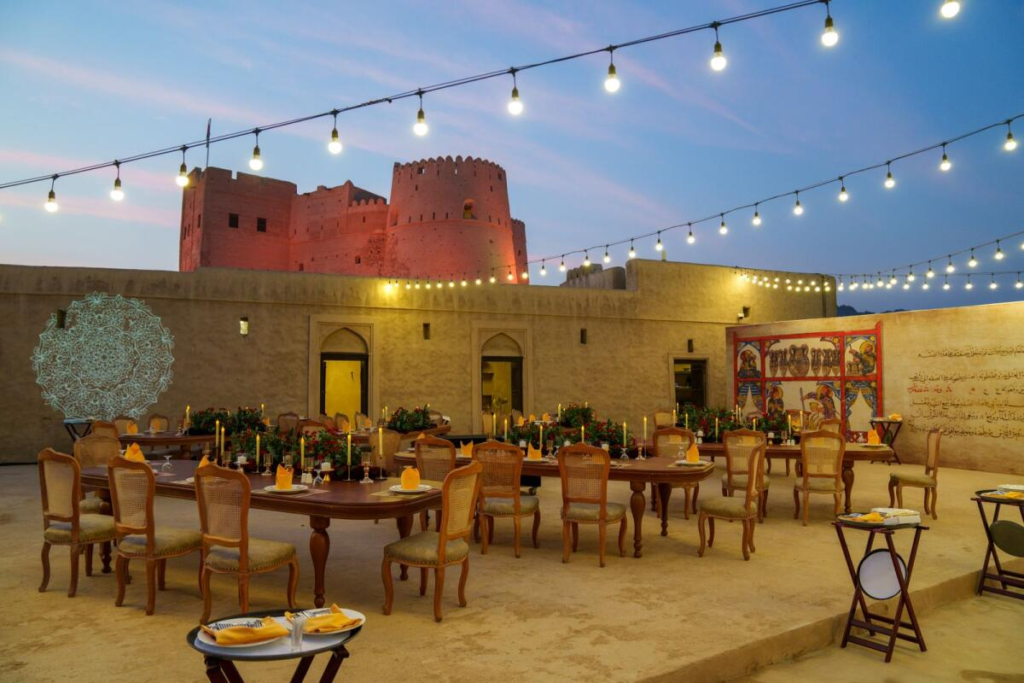Emirati and expat chefs in Fujairah showcased their culinary prowess by transforming the iconic Fujairah fort into a grand dining hall, reviving medieval Arab cuisine that dates back millennia.
Guided by Dr. Daniel Newman, an esteemed translator of Arabic literature and a scholar in cultural exchanges, the chefs curated a menu from the 8th to 15th centuries, spanning a vast geographical area from Baghdad to Al Andalus (Spain).
Rediscovering Forgotten Culinary Traditions:

Dr. Newman highlighted the rich legacy of Arabic cuisine, which has largely disappeared today despite boasting an extensive archive of 4,500 to 5,000 meticulously documented recipes from ancient culinary books.
The immersive dining experience, orchestrated by the Fujairah Culture and Media Authority, reintroduced forgotten rituals like using Ghasool for hand washing and lighting bakhoor. Unusual elements like millet bread and traditional appetizers like honey curd and tamarind have opened a window to the past.
Culinary Showcase and Historical Feasts:
Local chefs Umm Khamees, Masu’d Al Kindi, Abeer Allouz, and Ahmad Azzam demonstrated their culinary finesse by skillfully recreating age-old recipes from centuries ago with ingredients and spices.
Chef Masu’d Al Kindi prepared ‘Al Kamil,’ an extravagant dish reserved for the affluent. This exceptional delicacy involved stuffing chickens within a lamb, which was then inserted into a whole camel and slow-cooked for over 26 hours.
Feasting Traditions and Cultural Significance:
In medieval Arab culture, elaborate feasts were limited to special occasions, predominantly enjoyed by the elite. Food wastage was discouraged, and excess food was generously distributed to the less fortunate, akin to European culinary customs of that era.













